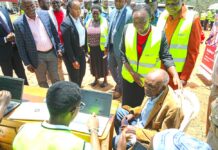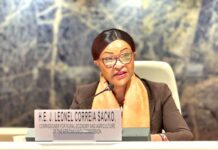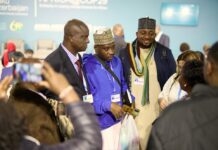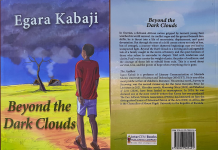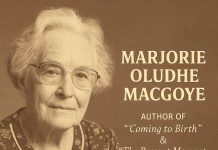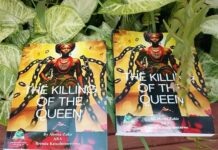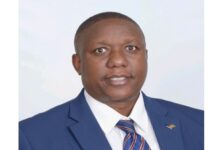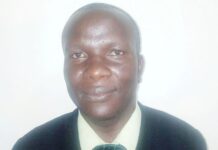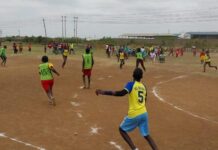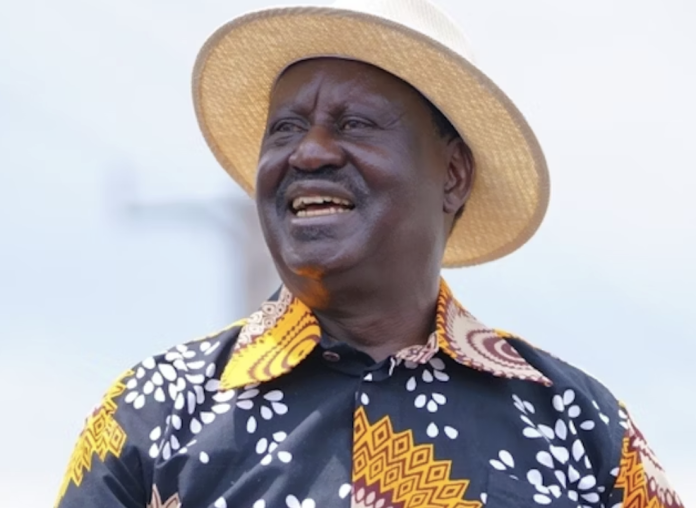
- Many remain in denial, unable to accept that Baba as millions affectionately called him will no longer walk among us. But such is the nature of death: it takes whom it will, when it will, regardless of our protests or our needs.
- Raila Odinga’s contributions to Kenya’s democratic evolution cannot be overstated, for he was among the vanguard who fought to dismantle Moi’s one-party dictatorship in the 1990s.
- His passing marks the end of an era, and while death has claimed him, his influence on Kenya’s political consciousness will endure long after the mourning has ceased and the tributes have faded.
Death, that unwelcome guest who arrives without invitation, has once again reminded us of life’s fragile impermanence. It steals from us those we hold dear, those whose presence we believed would endure just a little longer, those whose wisdom we thought we might yet draw upon in the days ahead. The Right Honourable Raila Amollo Odinga has departed from us, leaving behind a nation still processing the void, still grappling with disbelief, still moving through the necessary stages of grief. Many remain in denial, unable to accept that Baba as millions affectionately called him will no longer walk among us. But such is the nature of death: it takes whom it will, when it will, regardless of our protests or our needs. One day death itself shall die, scripture promises, but until that distant dawn, we the living must bear the weight of farewell and carry forward the memories of those who shaped our world.
Raila Odinga was born into political royalty on January 7, 1945, the son of Jaramogi Oginga Odinga, Kenya’s first Vice President, yet he carved out a legacy entirely his own. His early years were marked not by privilege but by sacrifice, as he spent formative time studying engineering in East Germany during an era when ideological battles shaped the world. Upon returning to Kenya, he became not merely a politician but an industrialist, building successful business ventures including a liquid petroleum gas enterprise that demonstrated his entrepreneurial acumen. His transition from business to activism was born of necessity and conviction, as he witnessed the authoritarianism of President Daniel arap Moi’s regime stifling Kenya’s potential. He paid dearly for his principles, spending years in detention following the failed 1982 coup attempt in which he was implicated. Those prison years marked by isolation, uncertainty, and the psychological torture of indefinite confinement would have broken lesser men, but they forged in Raila an iron resolve that would define his political career.
As a family man, Raila found his anchor in his wife Ida, whose steadfast presence sustained him through the darkest valleys of political persecution and electoral defeat. Together they raised children who bore witness to their father’s sacrifices, including a son named Fidel in honor of Fidel Castro, a testament to Raila’s early ideological leanings and revolutionary spirit. His family endured the long absences, the security threats, the public scrutiny, and the emotional toll of watching their patriarch repeatedly denied the presidency he sought. The Odinga household became a sanctuary where Kenya’s political dramas intersected with intimate human moments, where victory rallies gave way to quiet dinners, where national burdens were temporarily set aside for the simpler joys of familial love. Ida herself became a political figure in her own right, defending her husband’s health and dignity even as critics questioned his vitality. Their partnership exemplified a marriage tested by extraordinary circumstances yet remaining unbroken, a private love story playing out against the backdrop of public struggle.
Raila Odinga’s contributions to Kenya’s democratic evolution cannot be overstated, for he was among the vanguard who fought to dismantle Moi’s one-party dictatorship in the 1990s. He stood at the forefront of the push for multiparty democracy, enduring detention and exile as the price for his defiance of autocratic rule. The historic Saba Saba protests of July 7, 1990, which he helped organize, became a watershed moment in Kenya’s liberation struggle, galvanizing a generation to demand their constitutional rights. Later, in 2010, he championed the new constitution that introduced devolution, strengthened the judiciary, and embedded protections for civil liberties that transformed Kenya’s governance structure. His ODM party, which celebrated its 20th anniversary, became a vehicle for aspirations of millions who saw in Raila not just a politician but a symbol of resistance against the established order. Through five presidential campaigns spanning 1997 to 2022, he commanded unwavering loyalty from his base, particularly among the Luo community and progressive Kenyans who believed his vision for an equitable nation could materialize. His ability to mobilize masses, articulate grievances, and sustain hope despite repeated defeats marked him as a statesman par excellence.
Yet to speak honestly of Raila Odinga requires acknowledging the contradictions that increasingly defined his later years, the evolution from revolutionary tiger to what critics termed a domesticated political cat. His first handshake with President Moi in 2001, which secured him the Energy Ministry, signaled the beginning of a pattern: pragmatic accommodation with erstwhile adversaries in pursuit of power and position. The 2018 handshake with Uhuru Kenyatta, orchestrated in elite secrecy without public consultation, effectively neutralized the opposition and left millions who had protested the 2017 election feeling betrayed by their champion. When Generation Z rose in 2024 to protest punitive taxation, explicitly telling him “Baba Kaa Nyumbani”—Father, stay home—they were rejecting not his history but his present, his backstage negotiations with President Ruto that resulted in the broad-based government. While young Kenyans faced police brutality in the streets, Raila was brokering deals for cabinet positions and securing presidential endorsement for his ultimately unsuccessful bid for the African Union Commission chairmanship. The tiger who once roared against injustice had learned to purr for scraps of auxiliary power, his revolutionary credentials tarnished by opportunism.
His five unsuccessful presidential campaigns 1997, 2007, 2013, 2017, and 2022 constitute both his greatest testament to perseverance and the tragic arc of unrealized ambition. Each defeat he attributed to rigging, electoral malpractice, or systemic bias, claims that resonated with his supporters even as they strained credulity with each repetition. The 2007 election dispute plunged Kenya into its worst post-independence violence, with approximately 1,300 deaths and hundreds of thousands displaced, bloodshed that demanded not just political settlement but justice that never fully materialized. His decision to boycott the 2017 election rerun after the Supreme Court nullified the initial results revealed political calculation masquerading as principle, protecting his narrative of victimhood rather than testing it at the ballot box. The pattern suggested a man increasingly concerned with preserving his political mythology rather than accepting the democratic verdict, however imperfect. His repeated claims of electoral theft, while often grounded in legitimate concerns about IEBC integrity, also served to insulate him from accountability for campaign weaknesses, strategic missteps, and his failure to build coalitions beyond his ethnic base. The presidency that eluded him became both his greatest frustration and the source of his enduring mystique.
Despite these criticisms, Raila’s capacity for political forgiveness distinguished him from many contemporaries trapped in cycles of vendetta and ethnic animosity. He worked with Moi despite years of detention, governed alongside Kibaki after the violence of 2007, embraced Uhuru Kenyatta whom he had twice opposed, and ultimately partnered with William Ruto who defeated him in 2022. This ability to set aside humiliation, torture, and betrayal spoke to either extraordinary magnanimity or calculated pragmatism, perhaps some amalgamation of both. He understood that Kenya’s ethnic fissures and political tribalism required bridge-building, even if those bridges sometimes led to personal accommodation rather than structural reform. His handshakes, however controversial, represented attempts to move the nation beyond paralyzing polarization, to demonstrate that political adversaries could coexist without descending into violence. Whether this approach constituted statesmanship or surrender remains contested, but it undeniably shaped Kenya’s political culture, introducing the concept that opposition need not be permanent enmity. His willingness to forgive, even when forgiveness came with political reward, offered a model of reconciliation that other conflict-ridden African nations might study, even if they should not uncritically emulate.
As an African statesman, Raila Odinga embodied a pan-African consciousness that transcended Kenya’s borders, earning recognition from Addis Ababa to Pretoria. His pursuit of the African Union Commission chairmanship, though ultimately unsuccessful, reflected his continental ambitions and his belief that Kenya’s democratic struggles held lessons for the broader African liberation project. Leaders across the continent, from Tanzania’s Samia Suluhu Hassan to South Africa’s Cyril Ramaphosa, eulogized him as a champion of good governance and democracy, acknowledging his influence on regional politics. His support for liberation movements, his advocacy for African economic integration, and his vision of a united continent positioned him as heir to the pan-African tradition of Nkrumah and Nyerere. Yet this continental stature also highlighted the gap between his international reputation and his domestic reality: revered abroad as a democratic icon while increasingly viewed at home as a political operator whose revolutionary days had passed. The African spirit he imbued that defiant insistence on self-determination, that refusal to accept neocolonial impositions animated his early career but seemed to wane as pragmatism and personal ambition reoriented his priorities. His legacy in African politics remains significant, a reminder that even flawed leaders can inspire movements larger than themselves.
The tragedy of Raila Odinga lies not in what he accomplished, which was considerable, but in what he might have accomplished had he not compromised his principles in the twilight of his career. The man who mobilized the Saba Saba protests, who championed the 2010 constitution, who spent years in detention for democratic ideals, deserved to exit the stage with his revolutionary credentials intact. Instead, he became what he once opposed: a member of the political elite making backroom deals, prioritizing personal advancement over the collective struggle, alienating the very youth he had inspired through his earlier sacrifice. Generation Z’s rejection of his leadership represented the ultimate indictment, the revolutionary betrayed by the revolution he helped birth. His failure to name a successor, to build institutional structures within ODM that could outlast his charisma, suggested a leader unable to imagine politics without himself at the center. At 80, confronting multiple health challenges including diabetes and hypertension, he should have been mentoring the next generation rather than seeking continental positions that his body and his compromised political standing made untenable. The tiger-to-cat transformation was complete, the once-fearsome predator now comfortable in the domestic arrangements of power-sharing and elite accommodation.
Raila Odinga lived fully, experiencing the heights of political influence and the depths of detention, the adulation of millions and the humiliation of repeated electoral defeat. His party’s 20-year survival testifies to his ability to build enduring political structures, even as his personal presidential ambitions remained unfulfilled. He was detained for fighting autocracy, built businesses as an industrialist, commanded protests as an activist, governed as Prime Minister, and shaped every regime during his decades in opposition politics. His death at 80 in India, far from the Kenyan soil he fought to transform, carries its own poignancy, a leader who gave everything to his country yet died in exile pursuing medical treatment his nation could not adequately provide. The grief that has engulfed Kenya, the denial that persists among his supporters, reflects not merely the loss of a politician but the severing of a generational connection to Kenya’s democratic struggle. He was flawed, compromised, opportunistic at times, yet also principled, courageous, and transformative. History will judge him not by the presidency he never won but by the democracy he helped establish, not by his late-career compromises but by his early-career sacrifices. In the end, Raila Amollo Odinga was profoundly, complicated, and irreplaceably Kenyan, a man whose life traced the contours of his nation’s journey from autocracy toward democracy, with all the detours, setbacks, and partial victories that journey entailed. His passing marks the end of an era, and while death has claimed him, his influence on Kenya’s political consciousness will endure long after the mourning has ceased and the tributes have faded. May his soul rest in eternal peace, and may Kenya learn from both his triumphs and his failings as it continues the democratic journey he helped begin.
YOU MAY ALSO READ: Raila Odinga: The Eternal Flame of a Nation
The writer is a legal researcher and lawyer





